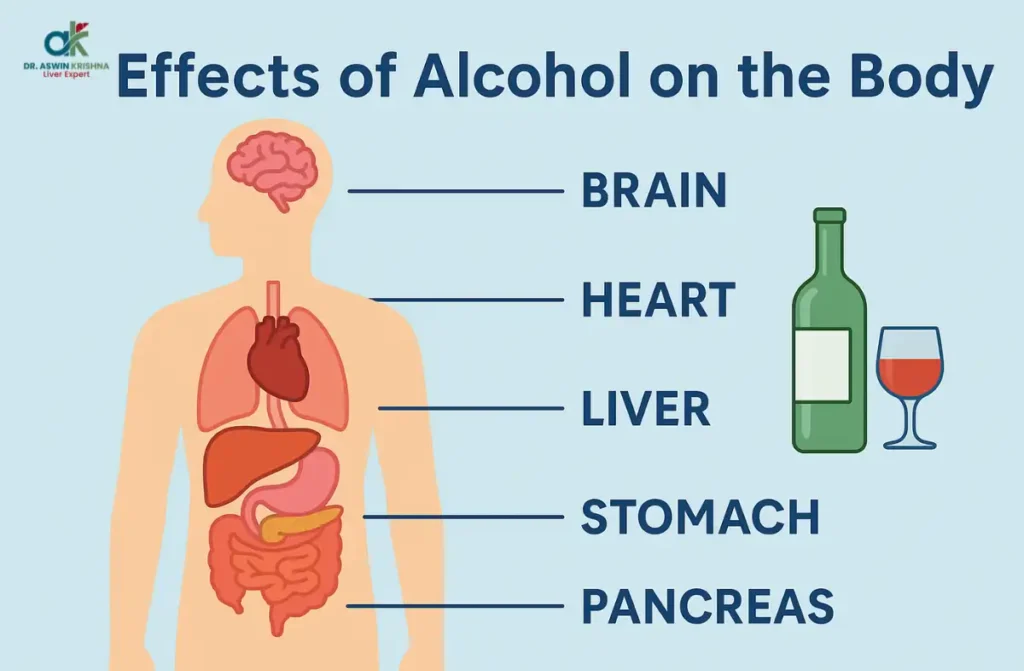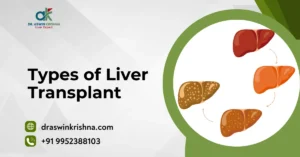How alcohol affects your liver is something you might not think about until there’s a problem. For most people, drinking alcohol is a normal part of socializing, relaxing, or celebrating. However, if you consume alcohol frequently, it’s important to understand what it’s doing to your body—especially your liver. The liver is one of the body’s most vital organs, responsible for breaking down harmful substances, including alcohol. But what happens when the liver is overworked by excessive drinking? Understanding how alcohol affects your liver is key to protecting your health and avoiding long-term damage.
How does alcohol affect the liver?
The liver plays a vital role in metabolizing alcohol, but excessive consumption overwhelms its ability to process toxins. When this happens, fat begins to accumulate, damaging liver cells and impairing function. Over time, this leads to inflammation, scarring, and potentially life-threatening diseases. Understanding how alcohol affects your liver helps highlight the importance of moderation and healthy lifestyle choices.
Excessive Drinking and Fatty Liver Disease
- Excessive drinking is the leading cause of alcoholic fatty liver disease (AFLD), the earliest stage of alcohol-related liver damage. At this point, fat droplets accumulate inside liver cells, impairing their ability to function effectively. This buildup illustrates clearly how alcohol affects your liver in its initial stages. Often, individuals experience no symptoms, making it a silent yet harmful condition.
- Many people question how can alcohol affect your liver in the early phase, and the answer is through disrupted fat metabolism. Alcohol alters how the liver breaks down fats, leading to abnormal storage. This excess fat reduces the organ’s ability to detoxify blood and regulate vital body functions.
- Regarding how does alcohol affect liver function in fatty liver disease, it weakens the liver’s role in controlling blood sugar levels, storing essential nutrients, and producing bile for digestion. This not only affects metabolism but also increases vulnerability to other health issues.
- The good news is that alcoholic fatty liver is often reversible with abstinence. By understanding how much alcohol affects liver health, individuals can take proactive steps. Limiting intake and adopting a healthy diet can help the liver heal before more severe stages develop.

Types of Alcohol-Related Liver Disease
- Alcohol-related liver disease (ARLD) develops in stages, each showing a different way how does alcohol affect liver function over time. The first stage is Alcoholic Fatty Liver Disease, where excess fat accumulates. While reversible, it proves how much alcohol affects liver health even without symptoms. Early detection is crucial to prevent progression.
- The second stage is Alcoholic Hepatitis, marked by liver inflammation, abdominal pain, fever, and jaundice. This stage highlights how much alcohol can damage the liver, as inflammation can quickly worsen, leading to liver failure if drinking continues. Unlike fatty liver, recovery is more challenging and depends heavily on immediate lifestyle changes.
- The final and most severe stage is Alcoholic Cirrhosis. At this point, scar tissue replaces healthy liver cells, permanently reducing function. This advanced stage explains how long does alcohol affect your liver, since cirrhosis damage is irreversible. Patients often face complications like internal bleeding, fluid retention, and increased cancer risk.
- Together, these stages demonstrate how can alcohol affect your liver in both the short and long term. While fatty liver may heal, hepatitis and cirrhosis carry serious consequences, underlining the importance of early intervention and reduced alcohol consumption.
Risk Factors for Alcohol-Related Liver Disease
- Alcohol Consumption Levels: The most critical factor is the quantity and duration of alcohol intake. Heavy and prolonged drinking shows directly how much alcohol affects liver health, with risks increasing the more consistently alcohol is consumed. Understanding how much alcohol can damage the liver helps highlight why moderation is key.
- Gender and Body Differences: Women are more susceptible because their bodies process alcohol differently. This explains how can alcohol affect your liver faster in women compared to men, even with lower consumption levels. Biological factors make them more vulnerable to alcohol-related liver damage.
- Coexisting Health Conditions: Obesity, poor nutrition, and infections like hepatitis worsen the way alcohol impacts the liver. These conditions intensify how does alcohol affect liver function, making the organ more prone to inflammation and scarring even with moderate drinking.
- Genetics and Family History: Some people inherit traits that influence alcohol metabolism, increasing their risk of ARLD. For them, how alcohol affects your liver is more severe, as the body cannot efficiently process toxins.
- Duration of Damage: Many ask how long does alcohol affect your liver after quitting. Fatty liver may improve in weeks, but once cirrhosis sets in, damage is permanent. This emphasizes the need for early action before irreversible harm occurs.
Symptoms of Alcohol-Related Liver Disease
One of the most troubling aspects of how alcohol affects your liver is that the early stages of damage can often go unnoticed. Many people don’t realize there’s a problem until the disease has progressed. So, how can you tell if your liver is in trouble?
Here are some common symptoms of alcohol-related liver disease (ARLD) that indicate your liver may be struggling:
- Fatigue and weakness: Your liver plays a role in energy production. When it’s damaged, you might feel unusually tired or weak.
- Jaundice: Yellowing of the skin and eyes is a common sign of liver trouble.
- Abdominal pain and swelling: Liver inflammation can cause discomfort and bloating in the abdomen.
- Nausea and vomiting: If your liver can’t process toxins properly, it can lead to nausea.
- Loss of appetite: A damaged liver may make you feel less hungry, leading to weight loss.
- Dark urine: As liver function deteriorates, urine may become dark in color.
If you’re experiencing any of these symptoms, it’s a good idea to see a doctor, especially if you’ve been drinking heavily for a long time. Early detection can make a big difference in treatment outcomes.
Alcohol and the Liver
So, how can alcohol affect your liver in the long run? When you drink alcohol, your liver works to process and break it down. Small amounts are usually not a problem for the liver to handle. However, over time, and with larger quantities, alcohol begins to damage liver cells. Your liver can only process a limited amount of alcohol per hour. When you exceed this limit, the excess alcohol flows through your bloodstream, causing intoxication and slowly damaging liver tissue.
The liver is unique in its ability to regenerate itself, but this process only goes so far. If the liver is constantly exposed to alcohol, it can reach a point where it can’t repair the damage anymore. This is when conditions like fatty liver disease, alcoholic hepatitis, and cirrhosis develop.
Stages of ARLD
There are three main stages of alcohol-related liver disease (ARLD). Each stage represents a different level of damage caused by alcohol, with the early stages being potentially reversible and the later stages leading to permanent damage.
Alcoholic Fatty Liver Disease
The first stage of liver damage from alcohol is alcoholic fatty liver disease. This happens when fat builds up inside the liver cells. It is the most common liver problem related to drinking and is often the first sign that the liver is not functioning as it should.
Key points to understand about fatty liver disease:
- It’s often reversible: If you stop drinking early, your liver can heal itself by breaking down the excess fat.
- There are usually no symptoms: Most people with fatty liver don’t experience any symptoms, which makes it easy to overlook.
- It’s a warning sign: If left untreated, fatty liver can progress to more severe forms of ARLD.
Alcoholic Hepatitis
The next stage is alcoholic hepatitis, where the liver becomes inflamed and swollen. This condition can range from mild to severe, and symptoms start to become more noticeable. At this point, you may experience jaundice (yellowing of the skin and eyes), fever, abdominal pain, and nausea.
Alcoholic hepatitis is a serious condition that can be life-threatening, especially if the inflammation is severe. Even moderate drinkers can develop alcoholic hepatitis if their liver is particularly sensitive to alcohol.
- Symptoms include yellowing of the skin, fatigue, and pain.
- It can cause permanent liver damage if not addressed.
- Treatment involves stopping alcohol consumption and possibly medications to reduce inflammation.
Cirrhosis
Cirrhosis is the most severe form of ARLD and occurs when the liver becomes permanently scarred. This scarring (fibrosis) blocks the liver’s ability to function properly, and once you have cirrhosis, it’s usually irreversible. People with liver cirrhosis often face severe complications, including liver failure or liver cancer, and may require a liver transplant.
- The liver becomes hardened due to scar tissue.
- Symptoms worsen as liver function deteriorates.
- It’s the last stage of ARLD and can lead to life-threatening conditions.
Treating Alcohol-Related Liver Disease
Wondering how much alcohol affects your liver and if there’s any way to reverse the damage? The good news is that, especially in the early stages, the liver has a remarkable ability to heal itself. However, this only happens if you stop drinking alcohol entirely.
Treatment options for how alcohol affects your liver disease depend on the stage:
- Abstinence: The most crucial step is to quit drinking altogether. This gives the liver a chance to heal and prevents further damage.
- Medication: In cases of alcoholic hepatitis, doctors may prescribe steroids or other medications to reduce liver inflammation.
- Lifestyle changes: A healthy diet, exercise, and regular medical check-ups can support liver function.
- Liver transplant: In cases of cirrhosis, where the damage is severe, a liver transplant may be the only option.
The earlier you seek treatment, the better your chances of preventing long-term damage and complications.
Complications of Alcohol-Related Liver Disease
If alcohol-related liver disease progresses unchecked, it can lead to a number of serious complications, including:
- Liver failure: This occurs when the liver is no longer able to perform its essential functions, such as detoxifying the blood.
- Internal bleeding: As cirrhosis worsens, blood vessels in the liver can rupture, causing internal bleeding.
- Liver cancer: Long-term liver damage from cirrhosis increases the risk of developing liver cancer.
- Kidney failure: In some cases, liver disease can also affect kidney function, leading to kidney failure.
Recognizing how alcohol affects your liver and taking action early can prevent these potentially life-threatening complications.
Preventing Alcohol-Related Liver Disease
If you’re worried about how much alcohol can damage the liver, prevention is key. Here are some ways to keep your liver healthy and avoid alcohol-related liver disease:
- Limit alcohol intake: Stick to the recommended guidelines for safe alcohol consumption (no more than one drink per day for women and two drinks per day for men).
- Healthy lifestyle: Eating a balanced diet and exercising regularly can support your liver’s health.
- Regular medical check-ups: If you’re a regular drinker, seeing your doctor for regular liver function tests can help catch any early signs of damage.
By understanding how long does alcohol affect your liver and taking steps to prevent damage, you can protect your health in the long term.
Is There a Safe Level of Drinking?
Many wonder, how much alcohol can damage the liver? While it’s true that occasional, moderate drinking generally poses less risk, even low levels of alcohol can potentially harm the liver over time. Studies indicate that drinking more than one alcoholic beverage per day for women or two for men may increase the risk of liver damage. However, individual factors like genetics, diet, and overall health also play a role in how much alcohol affects liver.
No amount of alcohol is entirely “safe,” but drinking within recommended limits can help lower the risk. People with existing liver conditions, a family history of liver disease, or other health issues should ideally limit or avoid alcohol altogether.
Reducing the Risk of Liver Damage
Reducing alcohol consumption can significantly minimize liver damage and promote overall health. Here are effective strategies to help protect your liver from the harmful effects of alcohol:
- Limit Your Intake: Stick to guidelines of one drink per day for women and two drinks for men, keeping in mind that less is better when it comes to protecting your liver.
- Choose Alcohol-Free Days: Regular breaks from alcohol allow the liver to recover and function more efficiently, helping prevent buildup of toxins that can lead to liver damage.
- Stay Hydrated: Alcohol can dehydrate the body, how does alcohol affect liver function. Drinking water while consuming alcohol reduces stress on the liver and helps metabolize alcohol more effectively.
- Avoid Binge Drinking: Consuming large amounts of alcohol in a short period can overwhelm the liver, leading to acute liver inflammation and potential long-term damage.
- Eat a Balanced Diet: Foods rich in antioxidants and essential nutrients like fiber, vitamin C, and omega-3 fatty acids can support liver health and reduce inflammation.
These practices can make a significant difference. If you’re concerned about how can alcohol affect your liver health, implementing these measures is a practical approach.
How Many Years of Drinking Can a Person Engage in Before Liver Damage Occurs?
The timeline for liver damage from alcohol varies from person to person. Generally, heavy drinking over a long period increases the risk of liver damage, though some individuals may experience liver issues after just a few years of consistent heavy drinking.
- Early Signs of Liver Damage: Even if you drink moderately, liver changes can begin after several years. Initially, the liver may show signs of fatty liver disease (steatosis), which is reversible if alcohol consumption is stopped.
- Alcoholic Hepatitis: With continued heavy drinking, liver inflammation known as alcoholic hepatitis may develop, and it can become severe over time.
- Cirrhosis: After years of heavy drinking (often 10 years or more), cirrhosis (scarring of the liver) can set in. At this stage, liver function is severely impaired, and it can lead to liver failure.
It’s essential to remember that how alcohol affects your liver depends on factors like genetics, diet, overall health, and how much alcohol is consumed regularly.
Is Any Amount of Alcohol Safe?
Many people wonder, “Is any amount of alcohol safe?” The answer depends on several factors, including the quantity of alcohol, the frequency of consumption, and individual health conditions. No level of drinking is entirely risk-free, but moderate drinking may carry fewer risks compared to heavy drinking.
- Moderate Drinking: According to health guidelines, moderate drinking is defined as up to one drink per day for women and up to two drinks per day for men. For most people, this amount is unlikely to cause liver damage, but it doesn’t eliminate risks entirely.
- Heavy Drinking: Consuming alcohol in large quantities, especially binge drinking, increases the risk of liver problems significantly. If you’re drinking excessively over the long term, the damage to your liver becomes more pronounced.
While moderate drinking may be considered safe for some people, the safest option is to understand how alcohol can affect your liver and to limit consumption. Individuals with certain medical conditions, such as liver disease, should avoid alcohol altogether.
Conclusion
How alcohol affects your liver is an important issue to understand, especially if drinking alcohol is a regular part of your life. The liver is a vital organ, and while it can recover from some damage, long-term alcohol abuse can lead to irreversible conditions like cirrhosis. If you’re experiencing symptoms of liver damage, or you’re concerned about the effects of alcohol on your liver, it’s never too late to make changes. By reducing your alcohol intake or quitting altogether, you can give your liver a chance to heal and protect yourself from serious health complications.
Read also How Long Does It Take To Reverse Fatty Liver.




